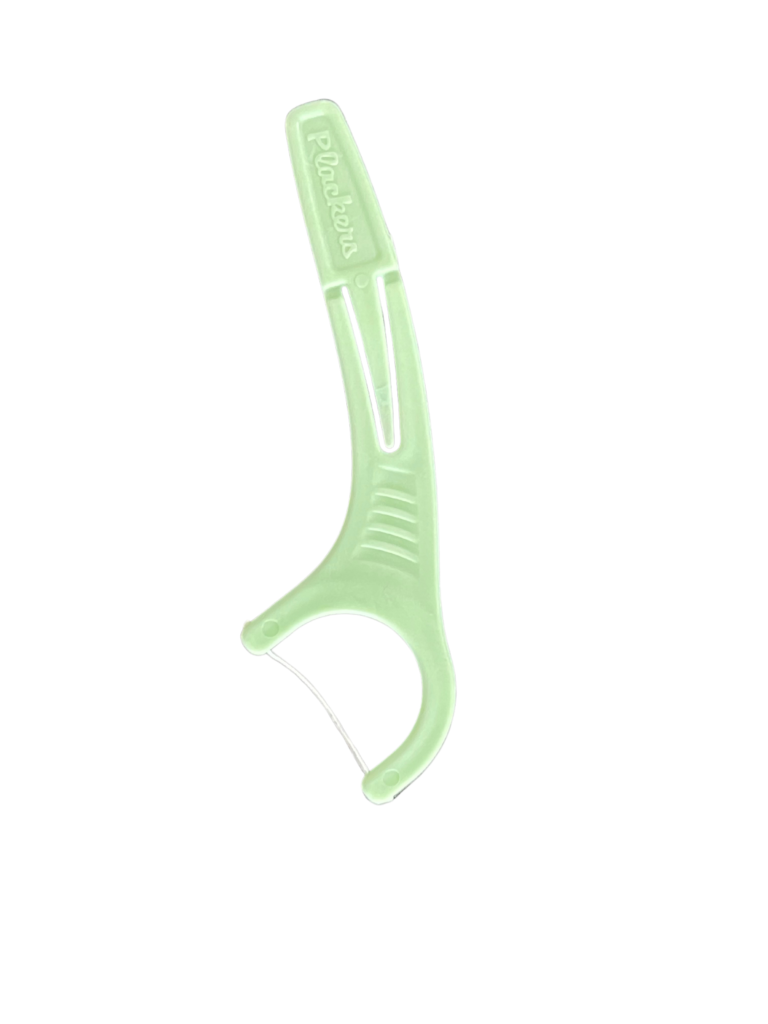
The health of your teeth and gums is your responsibility. You can take action to have a great smile that beams confidence and strength to those around you. Or you can be like George Washington, who famously did not smile for photos because of his false (wooden) teeth. Dentistry has come a long ways since George Washington’s day, and the dentist can be a great assistant in keeping your mouth healthy. But, you yourself have to do the “heavy lifting” of keeping your mouth healthy. Our complete guide shows you how to improve dental health with 11 natural steps you can do for yourself and 5 steps that your dental team can do for you.
- Why Oral Health Matters
- Natural Steps You Can Take to Improve Dental Health
- Brush your teeth at least twice a day.
- Use Natural Healthy Toothpaste
- Floss Every Day
- Use an Oral Irrigator
- Soft Bristle Toothbrush
- Change Your Toothbrush Often
- Eat a High Antioxidant Diet
- Take Dietary Supplements
- Use an Organic Essential Oil Blend to Improve Dental Health
- Use Colloidal Silver for Mouthwash
- Try Oil Pulling with an Added Drop of Ora-Shield
- Steps Your Dental Team Can Help You With
- Conclusion: Develop a Routine to Improve Dental Health
Why Oral Health Matters
More Free Time; No Fear of Dentists
Your oral health matters a great deal. First, if you do keep your mouth clean and healthy you will not get cavities in your teeth and you will spend very little time in the dentist office. The dentist will check your teeth, give you a clean bill of health, and send you on your way. Your dental hygienist will not scrape and poke around your teeth and scold you for not taking care of your teeth. You will have no reason to fear dentists at all.
Better Overall Health
Second, you will avoid amplifying diseases in other parts of your body. There is a well-known connection between gum disease and diabetes. Diabetes makes gum disease worse and then advanced gum disease makes diabetic symptoms worse. Gut infections, irritable bowel syndrome, and inflammatory bowel diseases like ulcerative colitis and Crohn’s disease also are connected to advanced gum disease, known as periodontitis. So, keeping your teeth clean will help you avoid all of these other diseases.
Healthy Teeth for Your Whole Life
Third, you will get to keep all your adult teeth your whole lifetime. These days it is very common for people to undergo root canal therapy for infections in teeth that kill the nerve of the tooth. And later on it is common to lose these same teeth due to failed root canals. But many people lose teeth because of advanced periodontitis. The infection in the gingival pockets between their gums and teeth get so bad that there is bone loss so that the tooth attachment sites are compromised, and the teeth literally fall out of your head. But the choice is yours.
Own a GREAT Smile
Fourth, you will have a great smile. You can confidently beam at people, laugh out loud, even throw your head back and howl if you want to, and not worry about people seeing inside your mouth. You won’t be afraid of showing off your teeth because they are healthy and look great.
So, your oral health matters a great deal. It matters enough for you set a healthy routine to take of your teeth now and reap the benefits of excellent oral health for the rest of your life.
Natural Steps You Can Take to Improve Dental Health
Brush your teeth at least twice a day.
Brush your teeth at least twice a day. Even better, brush after every meal to keep your teeth mostly clean, not mostly dirty. Don’t complain about it. Make it a routine. Get a book and read while you brush. Or watch a video while you brush. Did you know that the action of brushing alone is of great benefit? Yes, you can brush your teeth with nothing on your toothbrush and get great benefits. When you do this you can brush for more than 5 minutes, if you like. Doing an extended brushing session once a day can really keep the biofilm off your teeth and keep them squeaky clean. And you can do this while watching a video, listening to music, or reading a book. Make it part of your winding down routine at night as you get ready for bed.
Use Natural Healthy Toothpaste
Use a natural toothpaste that is healthy for your mouth and whole body. You’ve seen those warnings on toothpaste about not swallowing it because of the fluoride, right? Fluoride at high doses is a toxin, and at low doses it is still a toxin. A neurotoxin actually. This means that it poisons your brain. There are several excellent toothpastes on the market with ingredients you can actually understand that are fluoride-free. True, the American Dental Association won’t give these companies their “seal of approval” but the ADA is the same people who approve the placement of mercury in your head on a chewing surface right by your brain. These people are not concerned about your health, and you should not trust their advice.
Floss Every Day
Floss your teeth every day. I hated floss growing up. I still hate dealing with the long string of floss and sticking my fingers in my mouth and trying to position the floss between my teeth. Then I started using flossers, the plastic picks with the piece of floss in them. These work great! These are way more comfortable to use, do a great job, and enable me to make flossing a daily routine for my whole family.

Use an Oral Irrigator
Use an oral irrigator for cleaning your gumline. If you have any indications of poor gum health, don’t wait until it gets bad to take action. A little bit of prevention goes a long ways to avoiding huge complications. You can choose the solution you put into the chamber and apply the pulse of cleaning right to gumline to get excellent results. There are several brands of these oral irrigators and they are relatively inexpensive for what they deliver.
Soft Bristle Toothbrush
Use a soft bristle toothbrush. One reason for receding gums is brushing too aggressively. Above I mentioned brushing for an extended period of time, like 5 minutes or more. But that still shouldn’t be aggressive. Get the angle right on the toothbrush, along the gumline and brush without a lot of pressure.
Change Your Toothbrush Often
Change your toothbrush every 3 to 4 months. Toothbrushes clean better when they are new. Also, the bristles stiffen and become harsher as they age. Pick season changes for changing your toothbrush. Winter solstice, spring equinox, summer solstice, and fall equinox. That will work fine. Just remember to throw the old one out and get a new one. Buy packets of toothbrushes so you have them on hand to make the switch easy. I can always tell when I switch my toothbrush, as the new one always cleans better than the one I had used up.
Eat a High Antioxidant Diet
Eat a high antioxidant diet. A diet rich in fruits, berries, vegetables, organic whole grains, nuts and seeds, and beans will supply your body with a constant full stream of antioxidants and phytonutrients that build up your body. “Eat foods. Not too much. Mostly plants.” A high antioxidant diet will make your saliva more protective against cavities and gingivitis. It will supply your immune system with the ammo to destroy viruses and bacteria throughout your body, including in your mouth. When bacteria form a bio-film along the gumline of your teeth, and establish a presence in your gingival pockets (mostly because of lack of a good oral health routine, but maybe you missed a spot) it is your immune system that keeps them at bay and renders the infection harmless. If your immune system doesn’t have the necessary ammo, then the bacterial infection can run rampant and you end up with periodontitis.

Take Dietary Supplements
Take dietary supplements to boost your immune health. Here is a short list of the basics that everyone needs:
Vitamin D3. Many people need 5,000 IU/day to have healthy blood levels of 25(OH)D.
Vitamin C, at least 3 grams a day, taking just a 1 gram dose at a time. Vitamin C needs to be spread out throughout the day.
Fish oil. Take 2 or 3 regular strength capsules per day. Beware that fish is much more likely to be contaminated with heavy metals that commercially produced, closely monitored fish oil. So, take fish oil
Use an Organic Essential Oil Blend to Improve Dental Health
Use an essential oil blend of tooth oil to protect your gums. Not enough people know about this practice yet. But with half of the population with moderate periodontitis, a whole lot of people need to improve their oral health routine. Tooth oils have a blend of essential oils that help balance the bacteria in your mouth. That is, they decrease the populations of disease-causing bacteria and they promote the growth of beneficial bacteria. There is always going to be bacteria in your mouth. It is just a matter of which kind live there—good ones or bad ones. Ora-Shield is a great choice for a tooth oil, with a blend of peppermint and spearmint oils with a touch of oregano oil and tea tree oil for added potency in getting rid of nasty bacteria.
The purpose of tooth oil is to get these beneficial oils right down into the gingival pocket right where the fight for gum health is waged.
The best way to use tooth oil daily is by putting a few drops on your toothbrush after using a natural toothpaste. You rinse out the toothpaste and brush with tooth oil for about a minute or so, applying the bristles right along the gum line. You spit the extra when you are done, but don’t rinsing. Let the residual essential oil continue to work in your mouth when you are done.
Use Colloidal Silver for Mouthwash
Use colloidal silver as a mouth rinse. SilverBiotics and SilverSol are two reputable brands of colloidal silver that aren’t just ionic silver. Silver is powerful antibacterial element and has been proven effective against a wide array of bacteria.
Try Oil Pulling with an Added Drop of Ora-Shield
Oil pulling with tooth oil added. Oil pulling is another ancient practice. You use about a tablespoon of sesame oil or coconut oil and swish it between your teeth for about 10-15 minutes. The concept is to pull the bacteria out of the gumline and clean your mouth thoroughly. You can increase the effectiveness of oil pulling by adding a drop or two of Ora-Shield to your oil.
Steps Your Dental Team Can Help You With
If you already have periodontitis, or suspect that you do, you need some professional help to clean up your mouth so that your home oral health routine is more effective. So, here are five advanced techniques the dental team can use to help you regain a healthy smile.
Scaling and Root Planing (SRP)
Scaling and root planing. This technique is to get rid or tartar and plaque and bacteria that is down in the gingival pocket. If this pocket is big enough and deep enough, they call it a periodontal pocket. The dental hygienist will probe the depths of the pockets around your teeth and give it a score for depth. One to 3 millimeters is great and healthy. 4 mm is mild periodontitis, 5 to 7 mm is moderate periodontitis and 8 mm or great is advanced periodontitis. This is one score that you definitely don’t want to be a “10” on. The scaling and root planning is a good first step and gets you started back towards health.
Laser Cleaning of Periodontal Pockets
Laser cleaning of periodontal pockets. A dentist can use a biological laser that is tuned to kill bacteria while sparing healthy gum tissue. This isn’t available at every dental office (yet) but many periodontal specialists have a laser to clean deep periodontal pockets. Laser cleaning isn’t as invasive as surgery, and the recovery time is short, like a day or two, as opposed to weeks for gum surgery.
Flap Surgery for Advanced Periodontitis
Flap surgery to clean out deep, advanced periodontal pockets. This invasive surgery involves cutting the gum back in a flap to expose the roots of the teeth, cleaning out the bacteria along the roots and soft gum tissue, and then suturing up the gum back in place. While it may save your teeth when periodontitis has gotten very advanced, it sounds like a very bad day that turns into a very bad week.
Tissue Graft for Receding Gums
Tissue graft for receding gums. Receding gums expose the lower part of the tooth to everything in your mouth. But the lower tooth only has cementum on the surface, not enamel, so it isn’t supposed to be exposed to acids and bacteria. The gums can be built back up to cover the lower part of the teeth. Again, an ounce of prevention is much better than thousands of dollars of cures.
Stem Cell Implant
Stem cell regeneration of gum tissue. Stem cell therapy is still in its infancy, but there is some proof that an injection of stem cells, built up from your own reserves, in the right place can help rebuild gum tissue back to normal. That sounds much better than a tissue graft to me.
Conclusion: Develop a Routine to Improve Dental Health
Much of what most affects your oral health is “common sense.” But you don’t want to spend a lot of brain energy on doing what is healthy. So, develop a routine of brushing, flossing, using tooth oil, eating super healthy, taking immune boosting dietary supplements, and using an oral irrigator to maintain great oral health. Build these self-care practices into your daily life so you don’t have to think about them. Check in with your dentist to make sure all is going well and take corrective action if you missed a spot. Build the routine, do it automatically and reap the benefits.

